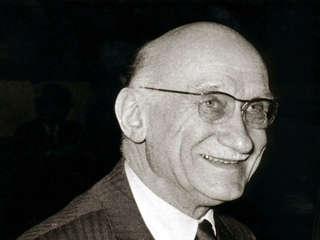
God and Caesar (Part IV)
From Jeff Fountain’s book Deeply Rooted. (Part I here, Part II here, Part III here)
This was to be the beginning of a prominent career in a succession of French cabinets over the next decade, successively as minister of Finance, Foreign Affairs and Justice.
One year and two governments later, Robert Schuman was appointed Prime Minister, a role he held during the tumultuous year of 1947-8.
For a short season, he simultaneously held the portfolio of foreign minister, before leaving the premier’s office to focus on the task closest to his heart.
These positions enabled him to initiate what he saw as a new era in which European nations would be held accountable to uphold basic human rights. No longer would it be possible for ‘state gangsterism’ to repeat the atrocities of Dachau and Auschwitz, and the persecution of minorities. He proposed establishing a Council of Europe to which all European democracies would be invited to join, submitting themselves to supranational law guaranteeing human rights. These rights were spelt out in what is now called the European Convention on Human Rights. A New Europe would be defined by the borders of the nations forming this council.
On May 5, 1949, Schuman gathered with leaders of ten European nations in St James Palace, London, to sign the statutes of the Council of Europe.
Even as he signed on behalf of France, Schuman knew that, as necessary as the Council was to protect human rights, further measures were necessary. At the press conference in London, he talked of the need of a supranational association or union of democracies to ‘make war impossible’. The past bloody centuries, with their deadly harvest of nationalisms and rivalries, had brought the planet to the brink of suicide. They had to cede to a new era of supranational unions of democracies focussed on peace.
This, he believed, would promote both spiritual and political growth. It would involve a great ‘European experiment’ rooted in the democratic principle of ‘loving your neighbour as yourself’ applied to peoples and nations.
Eleven days later in Strasbourg, Schuman returned to the theme of a ‘supranational union’, talking of a great experiment, a dream that for ten centuries had revisited the peoples of Europe, to create an organisation to end war and guarantee peace.
The Roman church of the Middle Ages had failed, he said, along with attempts by German emperors, and ‘the unacceptable pretentions of a Führertum whose “charms” we have all experienced.’
Schuman continued: “The European spirit signifies being conscious of belonging to a cultural family and to have a willingness to serve that community in the spirit of total mutuality, without any hidden motives of hegemony or the selfish exploitation of others. The 19th century saw feudal ideas being opposed and, with the rise of a national spirit, nationalities asserting themselves.
“Our century, that has witnessed the catastrophes resulting in the unending clash of nationalities and nationalisms, must attempt and succeed in reconciling nations in a supranational association. This would safeguard the diversities and aspirations of each nation while coordinating them in the same manner as the regions are coordinated within the unity of the nation.”
Yet the more Schuman promoted this theme, the more he felt a growing inner frustration, despite all the progress made in the few short years since the end of the war towards the goals he had identified during his seclusion.
The Council of Europe was in itself a major step towards the protection of human rights. He had represented France in Washington the month before to sign the North Atlantic Treaty and witness the birth of the military alliance that would bring stability to the West well into the following century. The Marshall Plan had already been under way a year, helping European countries to modernise business and industry, lower trade barriers and promote hope and self-reliance.
Yes, these were all essential factors in the rebuilding of a devastated and exhausted Europe.
But, Schuman felt, two things were still missing.
One, was the political will-power and framework for a ‘supranational union’. While to Schuman it was clear what steps had to be undertaken to build a new Europe, others were not so convinced; least of all his own successor as prime minister, Georges Bidault. He felt little support from his own government for the task ahead.The second was the personal will-power for deep, inner change, from the inside-out. All the help from America, economically and militarily, he knew, could never compel French and Germans, or Europeans in general, to ‘love their neighbours as themselves’.
Jeff Fountain
Director Schuman Centre

This Post Has 0 Comments